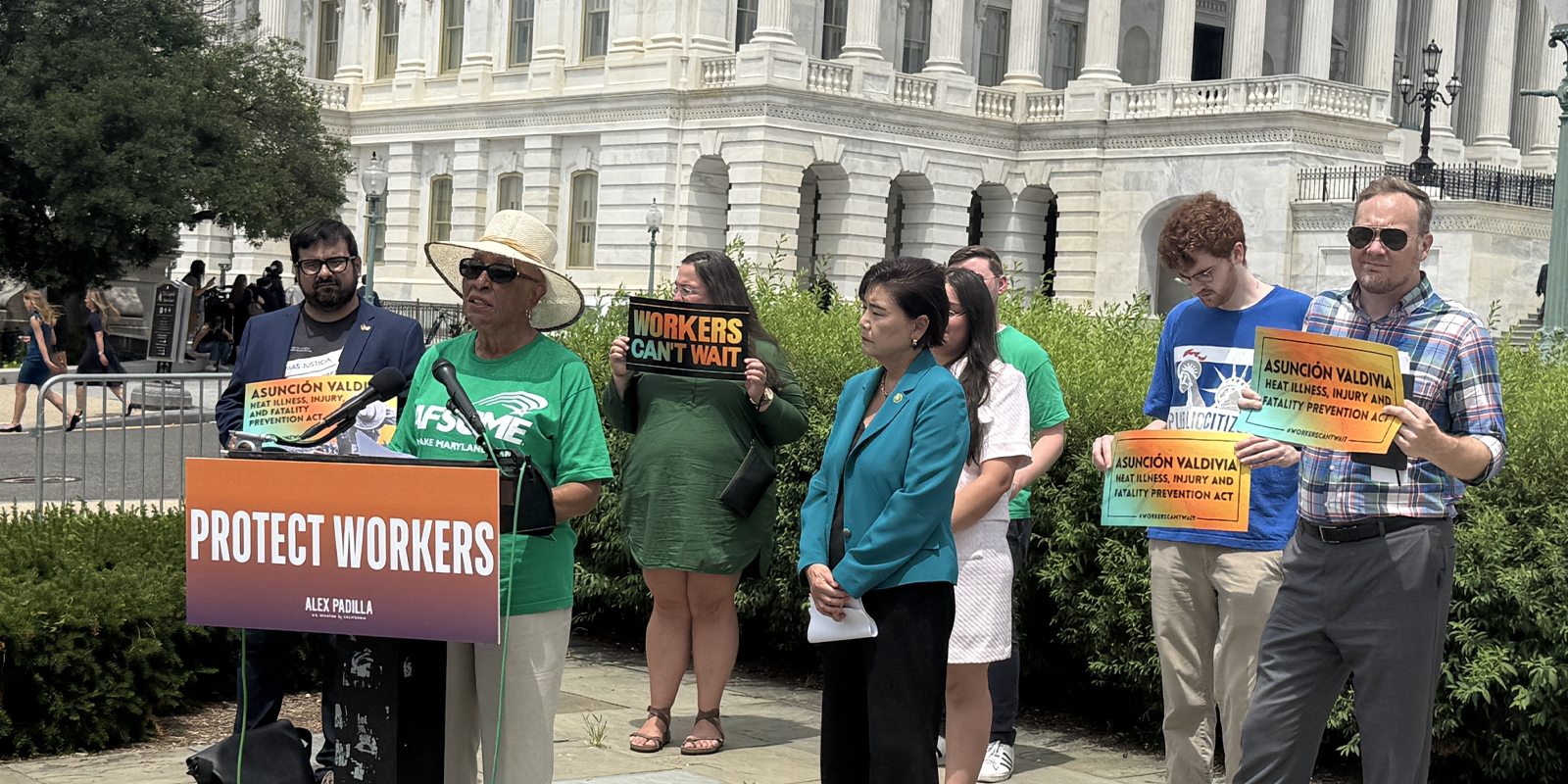Dorothy Bryant, president of AFSCME Local 44 (Council 3), spoke at a press conference on Capitol Hill on Wednesday to sound the alarm about a silent danger that many workers face: extreme heat.
Bryant told the story of Ronald Silver II, a 36-year-old sanitation worker for the city of Baltimore and a Local 44 member, who died last summer after being exposed to dangerous heat.
“Last August, he collapsed and died from heat stroke while working on his route,” Bryant said. “It was over 100 degrees that day. There was no break scheduled. No cooling plan in place. Not having heat protection took his life.”
For years, members of Council 3 advocated for statewide heat standards. Those standards took effect in September 2024, just one month too late to save Silver’s life. Maryland became the first eastern U.S. state to require employers to provide water, shade, rest breaks and training when the heat index exceeds 80 degrees.
However, the federal government has no such standard.
That is why Sen. Alex Padilla and Rep. Judy Chu, both from California, have introduced the Asunción Valdivia Heat Illness, Injury, and Fatality Prevention Act. The bill, named after a California grape picker who died after working 10 hours in 105-degree heat, would create federally enforceable protections from workplace heat stress.
It would require the Occupational Safety and Health Administration (OSHA), the federal agency in charge of keeping workers safe on the job, to ensure employers in every state protect workers from the heat. Last year was the hottest year on record in the U.S.
Praising the bill, AFSCME President Lee Saunders said: “As the number of heat-related illnesses and fatalities continue to rise, it is well past time we adopt nationwide safeguards to better protect the workers who maintain our infrastructure, keep our streets clean, harvest our food, and keep our economy moving.”
Bryant summed up why passing this legislation is so urgent: “Ron Silver, and every worker who lost their lives to the heat, should still be with us today. Let’s honor their memory by passing federal heat protections now.”
